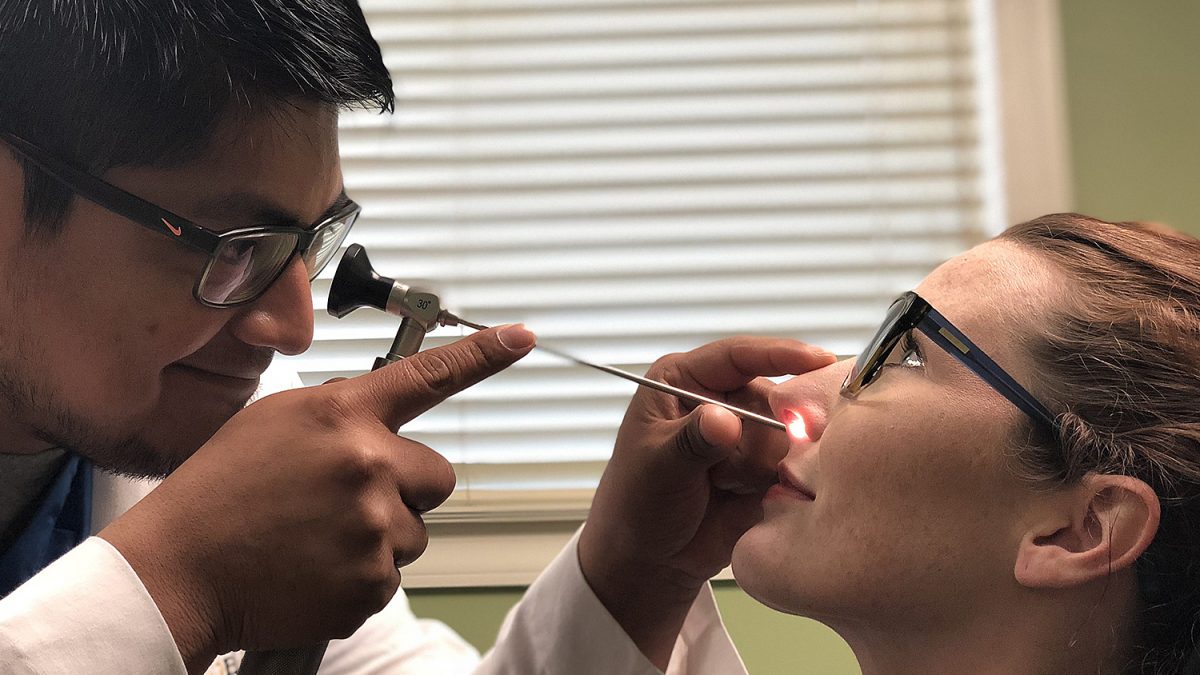- 979-485-9287
- office@bvallergy.com
-
 979-251-7804
979-251-7804
Signs of Sinus Infection

Can You Get Anaphylactic Shock From Dog Allergies?
November 20, 2018
Best Antibiotics to Treat Sinus Infection
December 5, 2018Have you ever had watery eyes, a stuffy nose, a cough, or a sore throat? Were you confused on whether or not these symptoms were caused by a cold or a sinus infection? It’s usually hard to tell if you’re already suffering from a common cold or sinus infection because these ailments share overlapping signs.
However, determining the cause of your symptoms is the first step to choosing the right medication for relief, and we’re here to help you figure it out!
What is Sinusitis?
In an article published in the U.S. National Library of Medicine, sinusitis occurs when the tissue lining the sinuses become swollen, infected, or inflamed. Medically known as rhinosinusitis, it occurs as the result of an infection from a virus, bacteria, or fungus. This manifests when the sinus openings become clogged because too much mucus has already built up, making breathing more difficult than usual.
What are the Signs of a Sinus Infection?
One major sign of a sinus infection is a painful increase in sinus pressure, which is caused by inflammation in your tissue lining and nasal congestion. It is important to take note that the human body has several different sinuses, and the pain that you may feel when having a sinus infection may differ on the location of the sinus affected.
Here are the other symptoms of sinusitis:
- Frontal Headache
- Sneezing
- Sore Throat
- Stuffy Nose
- Cough
- Fatigue
- Bad Breath
The level of intensity of sinus infection symptoms may differ on the type of sinusitis you have.
Types of Sinusitis
Acute Sinusitis
This occurs when symptoms experienced by an individual last up to 4 weeks as a result of a cold or bacterial infection. Occurrences may happen repeatedly depending on the the medication taken.
Subacute Sinusitis
This type of sinusitis occurs when the inflammation or infection of the sinuses lasts for 4-12 weeks. During this time, it is important to keep your doctor updated to avoid worsening your condition.
Chronic Sinusitis
This occurs when an individual’s symptoms last for more than 12 weeks. The sinuses may have narrowed or closed completely because of chronic infection or inflammation. It would be best to consult a doctor when symptoms persist.
Treatments for Sinusitis
Bacterial infections are treated with antibiotics. Sinusitis is sometimes driven by bacteria, which is why antibiotics are employed to treat sinus infection. When signs of sinusitis start to occur, a 7-10 day medication is needed to alleviate pain and provide relief. However, if symptoms are recurring, other medication may be prescribed by your doctor.
Decongestants, over-the-counter mucus thinners, and corticosteroid medications can help ease your discomfort when experiencing sinusitis.
Surgical treatment may also be recommended for chronic sinusitis if non-surgical treatment is ineffective. Undergoing a surgery may improve sinus airflow and drainage.
If you are looking for an allergy clinic in College Station, Texas, you can contact Brazos Valley Allergy & Asthma Clinics to learn more about the surgical treatments you can undergo to ease your pain. They can provide you accurate, affordable diagnosis and the best treatment and care for your sinus infection.
REFERENCES:
Healthline
The American Academy of Allergy, Asthma & Immunology
MedicineNet
MedlinePlus
Southern Cross Healthcare Group – New Zealand – Southern Cross NZ




